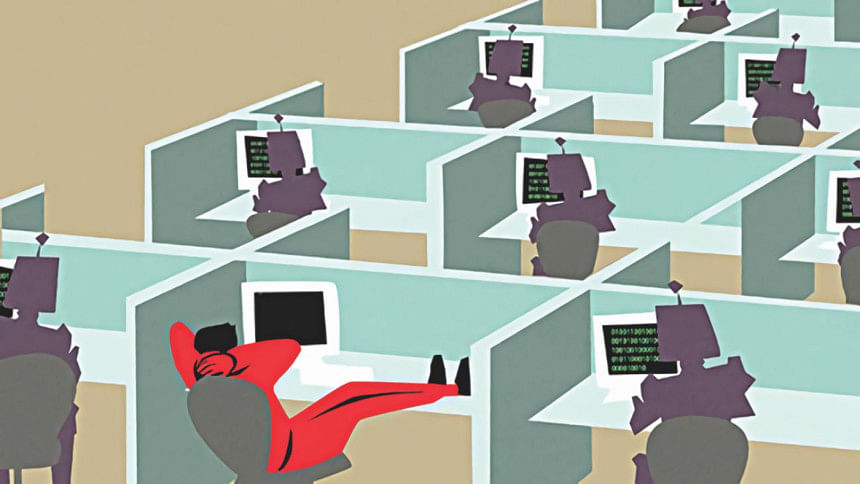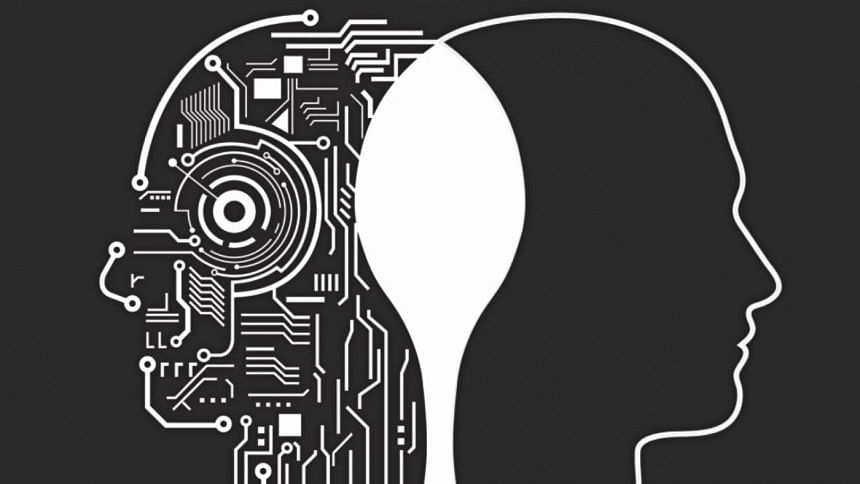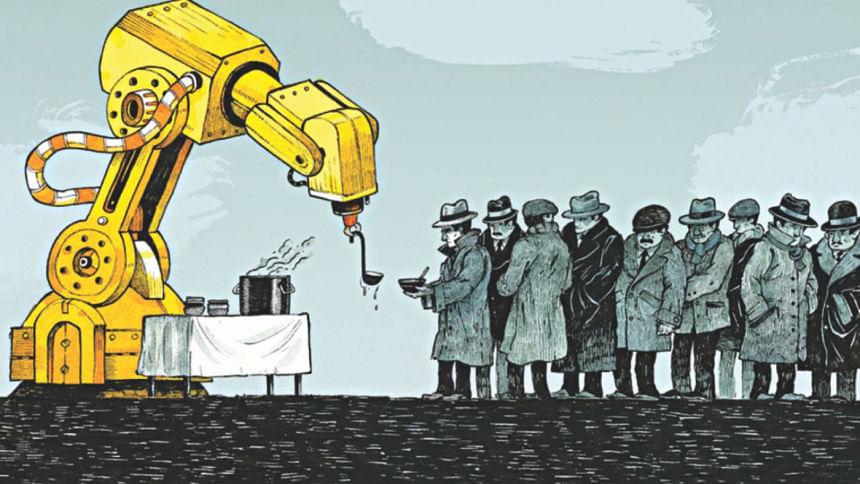Universal Basic Income - More than just fighting robots

Robots and artificial intelligence (AI) are here to stay. They'll only become more and more efficient and intelligent. It's not unnatural to ask the question: will these robots make us all redundant one day? Only time can tell how the future unfolds. The question to ask now is: what to do?
After World War II, it became a necessity for housewives to join the labour force. Mass education disturbed traditional professions and way of life. As children of farmers and artisans got educated, they entered their parents' profession less and less. As a necessity, these sectors became mechanised and slowly automated. With women coming out of their houses and entering the job market, machines in the form of washing machines, dish cleaners, hoovers and more replaced humans. These changes were inevitable and also desirable.
When a sector of the economy starts to get mechanised by machines or robots, two things happen. First, some people will become unemployed to such an extent, they may lose their livelihoods. Second, those who lose their jobs or decide not to accept their parents' way of life, can escape this by training themselves in an alternative sector.
Change in employment in industries due to mechanisation or robots is known as "structural unemployment". Structural unemployment is worrying. Some workers will lose their jobs, re-train themselves and move on somewhere else. Others may find they can't re-train themselves or the skills that they have can't be utilised elsewhere. As quartz watches became cheaper, craftsmen who were involved in manual watches, soon found their skill is worth nothing.

Do societies have a safety-net to address these changes? They do have an answer though. Societies address this through unemployment benefits and welfare payments. These payments serve two purposes. First, they help families out of work and families who fall under a certain poverty level. Second, if people are out of work for too long, tensions will rise. This may lead to social unrest. Unemployment benefits and welfare payments keep a check on such social tensions. However, as time moves on, new challenges arise.
The problem with welfare is: it addresses people below a poverty line. It does not address people above the poverty line who find it stressful in working long hours to make ends meet. Welfare also comes with conditions attached. One may not be able to freely do what they like with the benefits they receive.
In the 1930s, John Maynard Keynes of Cambridge was influential in making societies recognise the role of the government in pulling an economy out of depression. Keynes introduced a concept "autonomous consumption". This is the level of consumption an individual has to have whether or not they have an income or not. Only until recently, nobody thought of autonomous income i.e. the minimum level of income needed for basic consumption. This is now known as Universal Basic Income or UBI.

UBI is simple. Each citizen (rich or poor) receives a fixed amount of payment. UBI has no conditions attached; one is free to do whatever they like. Many sectors in many countries, even in Bangladesh, are becoming automated. This automation is happening fast and leading to loss of jobs. At the same time, robots are leading to increased productivity and more wealth for societies.
Whether UBI will become a policy of all States is for time to tell. The notion of UBI has multiple dimensions that have been implicitly mentioned already. With a guaranteed income, families will find time to invest time in activities that the stress of work doesn't allow them to do. If robots and AI are making societies more productive and creating more wealth, then why not the robots (companies who implement automation) and the State give a UBI?
If food, shelter, housing, education, and health are fundamental human rights, then the time has come to recognise a guaranteed level of income also as a fundamental right. If a UBI or some form of UBI isn't given to citizens due to increased automation from robots and AI, then the obvious may happen. Societies will become more and more unequal. History has testified many times: too much inequality can only create tension and anarchy.

Asrar Chowdhury teaches economic theory and game theory in the classroom. Outside he listens to music and BBC Radio; follows Test Cricket; and plays the flute. He can be reached at: asrar.chowdhury@
facebook.com

 For all latest news, follow The Daily Star's Google News channel.
For all latest news, follow The Daily Star's Google News channel. 



Comments